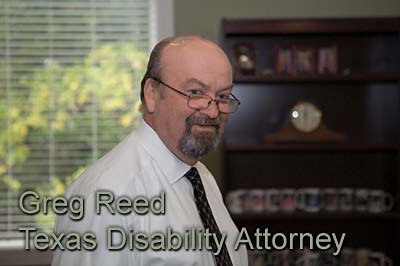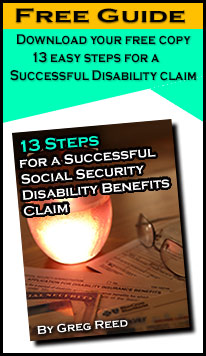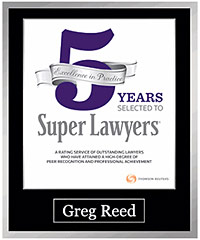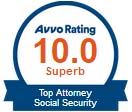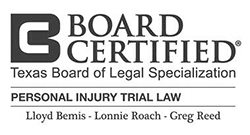Housing Rights for the Disabled – Know the Law
Securing appropriate housing can be difficult for the disabled. Protect yourself by knowing the law.
Author Attorney Greg Reed:
Having a home of one’s own and achieving an independent lifestyle are values most people share. Housing costs in general seem to rise every year, but for persons with disabilities, including developmental and intellectual disabilities, the affordability gap has widened considerably and issues associated with housing have gone beyond affordability.
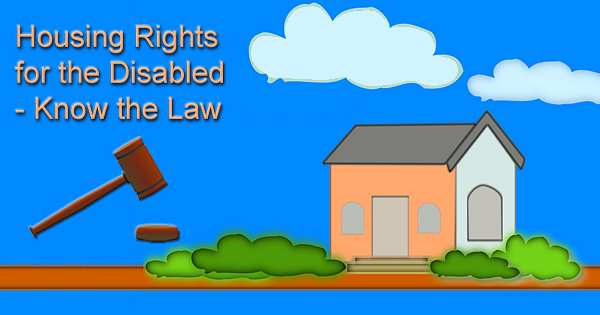
If you are disabled you should understand what your housing rights are. A little knowledge can go a long way in protecting your quality of life.
Finding a home or apartment that is accessible as well as affordable can be a challenge.
Approximately 4.9 million non-institutionalized Americans with disabilities who rely on Supplemental Security Income (SSI) have incomes low enough to be priced out of every rental housing market in the nation according to Priced Out in 2014. Disabled people may also face the additional challenge of discrimination when searching for housing.
Section 504 of the Rehabilitation Act of 1973, or “Section 504” provides that “no qualified individual with a disability should, only by reason of his or her disability, be excluded from the participation in, be denied the benefits of, or be subjected to discrimination under any program or activity receiving Federal financial assistance.”
A disabled person is defined by law as “Any person who has a physical or mental impairment that substantially limits one or more major life activities; has a record of such impairment; or is regarded as having such an impairment.” Impairments include mobility and visual impairments, hearing, chronic mental illness, alcoholism, AIDS and AIDS Related Complex, and mental retardation. Walking, talking, hearing, seeing, breathing, learning, performing manual tasks, and caring for oneself are considered major life activities. See www.hud.gov.
Federal law guarantees disabled persons the following rights whether they live in private or public housing:
- A housing provider may not refuse to rent or sell to a person because of a disability or require different application or qualification criteria, sales prices or rental fees, rental or sales terms or conditions than those required of persons who are not disabled. A landlord may not refuse to rent to a person with a mental disability simply because they are uncomfortable with that disability, for example.
- Reasonable accommodations must be made for persons with disabilities. Such an accommodation would be a change in policies or services allowing a disabled person the same opportunity to use and enjoy a dwelling unit or common area as a person who is not disabled. Housing providers are expected to assist the disabled; however, they are not required to make changes that would cause undue financial or administrative burdens. Providing a reserved parking space for a tenant with mobility impairment would be a reasonable accommodation.
- Housing providers must allow persons with disabilities to make reasonable structural modifications to their dwellings, such as ramps or grab bars. Usually modifications are made at the resident’s expense, but housing providers that receive Federal assistance may be required to pay the cost if it is not an undue financial or administrative burden.
- New covered multifamily housing must be designed and constructed to be accessible and comply with the design and construction requirements of the Fair Housing Act listed below.
- Accessible entrance on an accessible route.
- Accessible public and common-use areas
- Usable doors
- Accessible route into and through a dwelling unit
- Accessible light switches, electrical outlets, thermostats and environmental controls
- Reinforced Walls in bathrooms
- Usable kitchens and bathrooms
These requirements apply to covered multifamily dwellings designed and constructed “for first occupancy” after March 13, 1991.
“First occupancy” refers to a building that has never been used before for any purpose. Buildings that are rehabilitated are not covered by the design and construction requirements.
If you have been denied disability don’t give up! Contact a Social Security disability lawyer at 512-454-4000 for a free consultation and get the benefits you deserve.
While many states and municipalities have instituted fair housing laws similar to the Federal Fair Housing Act and prohibit discrimination on additional bases, it is unlawful for local governments to utilize land use and zoning policies to prevent disabled persons from locating to a particular area.
For more information, see the Joint Statement of DOJ and HUD on Group Homes, Local Land Use, and the Fair Housing Act.
The Americans with Disabilities Act does not apply to residential housing.
Instead, it applies to public spaces such as restaurants, stores, libraries, office buildings, and medical facilities. Title III of the ADA covers common use areas at housing developments when these areas are open to the general public. Title II of the ADA applies to all programs, services, and activities provided by public entities, including housing when housing is made available by a public entity, such as housing on the campus of a state university.
Federal law prohibits housing discrimination based on race, color, national origin, religion, sex, familial status, or disability.
If you are disabled and believe you are the victim of discrimination while trying to buy or rent a home, you may file a fair housing complaint with the U.S. Department of Housing and Urban Development online at hud.gov. Your complaint will be reviewed by a specialist, and if the complaint involves a potential violation of the Fair Housing Act, the specialist will assist you in filing an official housing discrimination complaint.
Disability benefits are an important source of income for those who are unable to work. If you are not able to work due to injury or illness, you may be eligible for Social Security Disability or Long Term Disability benefits. If you have applied for benefits and been denied, contact the attorneys at Bemis, Roach and Reed for a free consultation. Call 512-454-4000 and get help NOW.
Hot Weather and the Disabled – Avoid Danger
Confronting Disability: No Age Limit Required
Misdiagnosed Stroke – You could be in danger
Author: Attorney Greg Reed has been practicing law for 29 years. He is Superlawyers rated by Thomson Reuters and is Top AV Preeminent® and Client Champion Gold rated by Martindale Hubbell. Through his extensive litigation Mr. Reed obtained board certification from the Texas Board of Legal Specialization. Greg is admitted to practice in the United States District Court - all Texas Districts and the United States Court of Appeals-Fifth Circuit. Mr. Reed is a member of the Travis County Bar Association, Texas Trial Lawyers Association, past Director of the Capital Area Trial Lawyers Association, and an Associate member of the American Board of Trial Advocates. Mr. Reed and all the members of Bemis, Roach & Reed have been active participants in the Travis County Lawyer referral service.
Your Free Initial Consultation
At Bemis, Roach and Reed, if we can't help you, we will try to find the right attorneys for you.
We offer each of our prospective clients a free no obligation one hour phone or office consultation to see if we can help you and if you are comfortable with us. We know how difficult a time like this can be and how hard the decisions are. If we can be of assistance to you and help you find a solution to your issue we will even if that means referring you to another attorney.
Or simply call
512-454-4000
to schedule your
Free Consultation
Let's get you Started:
If you could provide us with some basic information about your claim we will get right back with you with a free case evaluation and schedule your Free Consultation Today.

